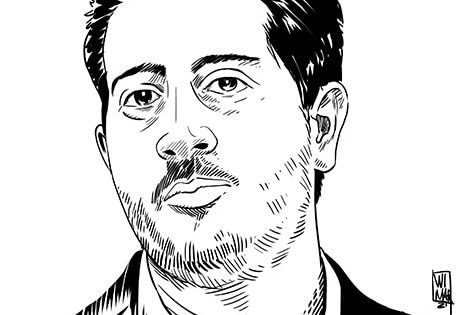(CPJ/IFEX) – The following is a 12 November 2003 CPJ press release: CUBA: CPJ concerned about imprisoned journalists’ welfare New York, November 12, 2003-The Committee to Protect Journalists (CPJ) is extremely concerned about the lack of information regarding the situation of imprisoned Cuban journalists Mario Enrique Mayo Hernández, Adolfo Fernández Saínz, and Iván Hernández Carrillo, […]
(CPJ/IFEX) – The following is a 12 November 2003 CPJ press release:
CUBA: CPJ concerned about imprisoned journalists’ welfare
New York, November 12, 2003-The Committee to Protect Journalists (CPJ) is extremely concerned about the lack of information regarding the situation of imprisoned Cuban journalists Mario Enrique Mayo Hernández, Adolfo Fernández Saínz, and Iván Hernández Carrillo, who began a hunger strike on October 18.
A week after a failed attempt by a group of family members to visit the journalists and dissidents who had gone on a hunger strike in the Holguín Provincial Prison in eastern Cuba, the strikers have been dispersed and transferred to other prisons.
According to CPJ sources, the group of family members traveled to Holguín Province on November 6 to obtain information about the journalists and dissidents and tried to see them. After prison authorities refused to meet the group’s demands, the group camped outside the prison. The next day, the prison director, a captain who identified himself by the name Israel, received the group. Israel told them that as long as the journalists and dissidents committed “indisciplines,” they would not be allowed any contact with their families. When Mayo Hernández’s wife, Maydelín Guerra Álvarez, asked about her husband, Israel said that he had received orders to transfer Mayo Hernández to the Mar Verde prison, in neighboring Santiago de Cuba Province. The group decided to leave the prison on November 7 with the promise from Israel that the prisoners would be allowed to call home, but so far the families have not received any phone calls from the prisoners.
After the group of wives and mothers left the prison, some dissidents who had joined the hunger strike were moved to other prisons, sources told CPJ. Fernández Saínz has been transferred to another unit within the same prison, according to his wife, Julia Núñez Pacheco. On November 11, Guerra Álvarez traveled to the Mar Verde prison but was not allowed to see her husband. Because the prison authorities have refused to allow contact with the strikers, their families have been unable to confirm if they halted the hunger strike or what their health conditions are.
Mayo Hernández and Fernández Saínz had joined four jailed dissidents in a hunger strike that began on October 18 to protest the treatment of Hernández Carrillo, who was placed in a punishment cell after complaining about feeling sick.
CPJ has also learned that journalist Manuel Vázquez Portal, who is jailed in Aguadores Prison, in Santiago de Cuba, began a hunger strike yesterday. According to Yolanda Huerga, Vázquez Portal’s wife, her husband had started yet another hunger strike to support the Holguín journalists and dissidents. Vázquez Portal is being honored this year with one of CPJ’s International Press Freedom Awards.
During the last four months, several imprisoned Cuban journalists have gone on hunger strikes. In August, Mayo Hernández, Fernández Saínz, and Hernández Carrillo held a 13-day hunger strike to demand better food and adequate medical attention. That same month Vázquez Portal and journalist Normando Hernández González, who at the time were jailed in Boniato Prison, in Santiago de Cuba, went on a hunger strike that lasted one week. In retaliation, Vázquez Portal was subsequently transferred to Aguadores Prison while Hernández González was sent to a prison in the western province of Pinar del Río.
The imprisoned journalists, who are being held in maximum-security facilities and are handcuffed any time they leave their cells, have denounced unsanitary prison conditions, inadequate medical attention, solitary confinement, and lack of access to the press and television. They have also complained about receiving foul-smelling and rotten food.
Twenty-eight independent Cuban journalists were detained in a massive government crackdown in March. Their one-day trials were held in early April behind closed doors. Some journalists were tried under Article 91 of the Penal Code, which imposes lengthy prison sentences or death for those who act against “the independence or the territorial integrity of the State.” Other journalists were prosecuted for violating Law 88 for the Protection of Cuba’s National Independence and Economy, which imposes up to 20 years in prison for anyone who commits acts “aimed at subverting the internal order of the Nation and destroying its political, economic, and social system.”
On April 7, courts across the island announced prison sentences for the journalists ranging from 14 to 27 years. They remained imprisoned in jails administered by the State Security Department until April 24, when most were sent to prisons located hundreds of miles from their homes. In June, the People’s Supreme Tribunal, Cuba’s highest court, dismissed the appeals for annulment (recursos de casación) filed in April by the journalists and upheld their convictions.
For more information about press freedom conditions in Cuba, visit http://www.cpj.org CPJ is a New York-based, independent, nonprofit organization that works to safeguard press freedom around the world.


